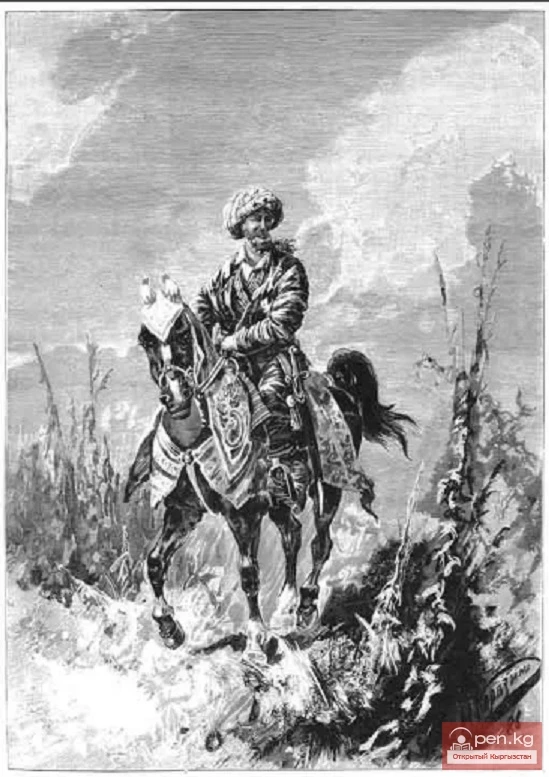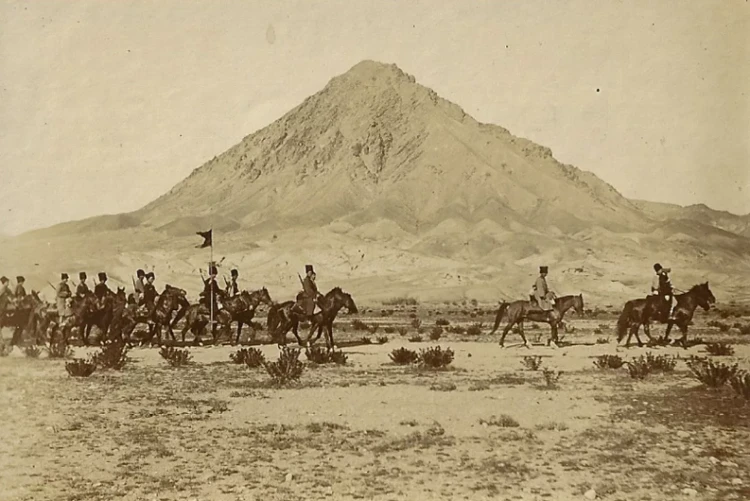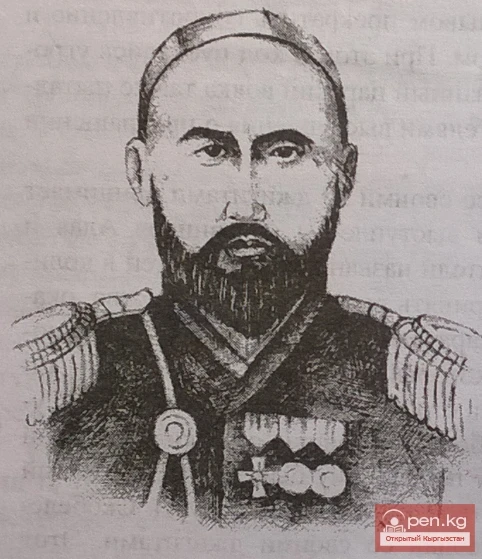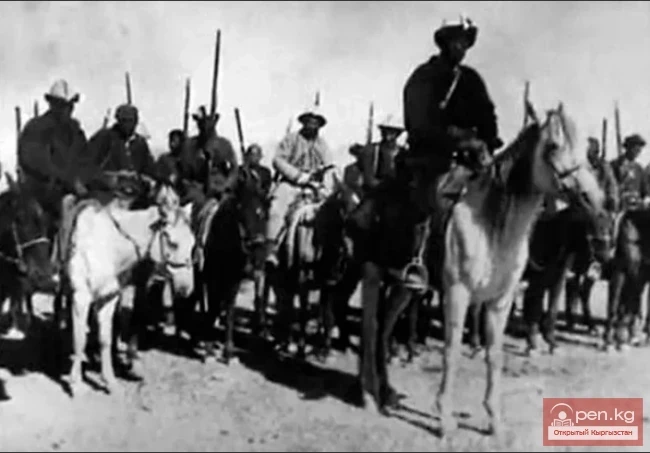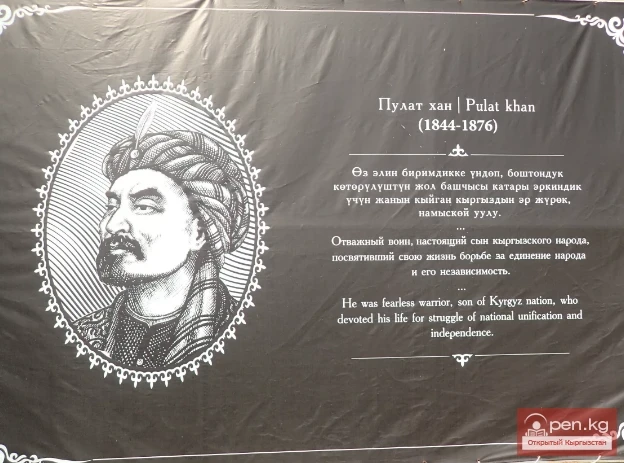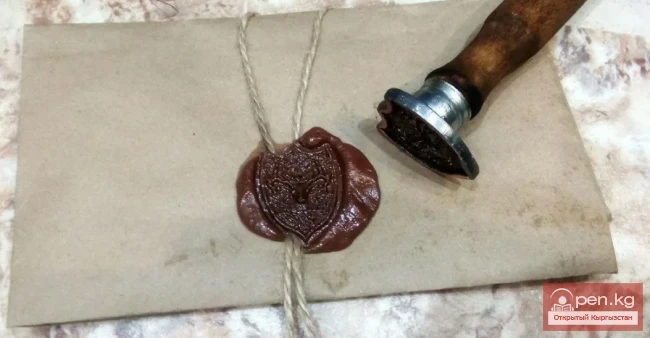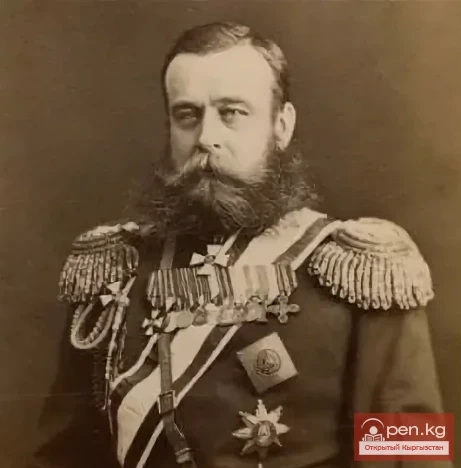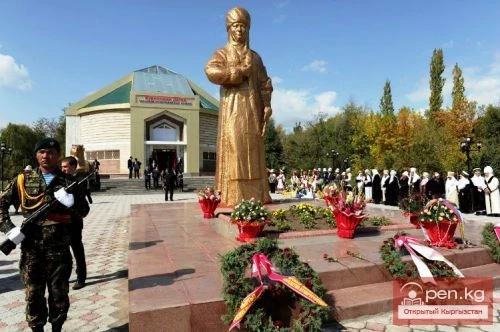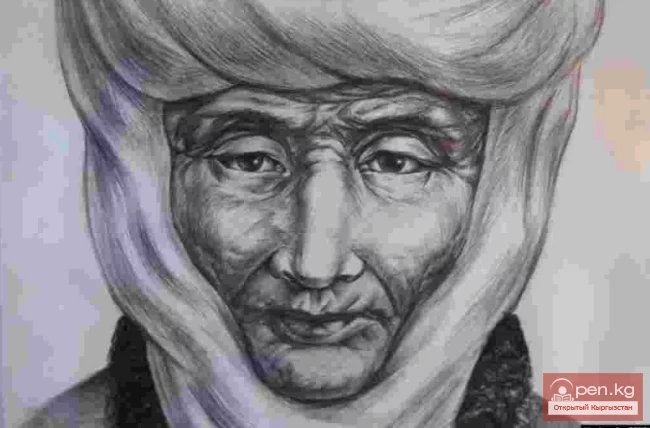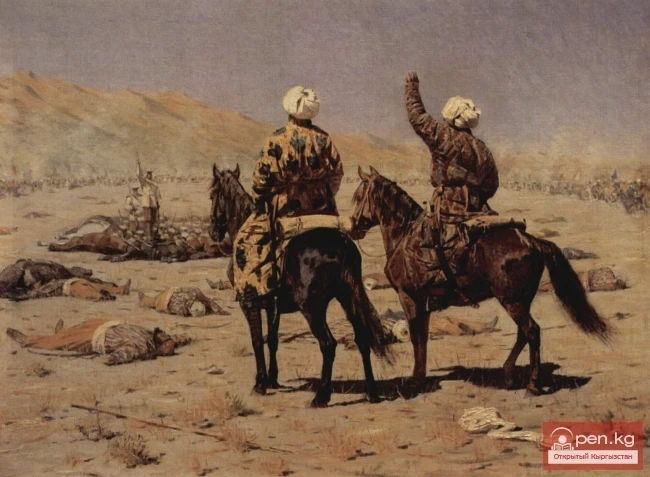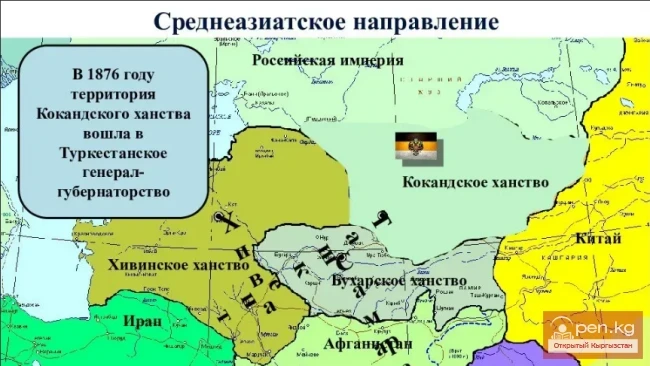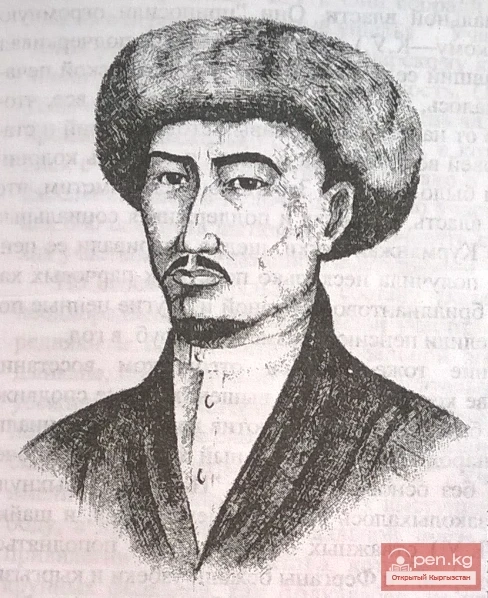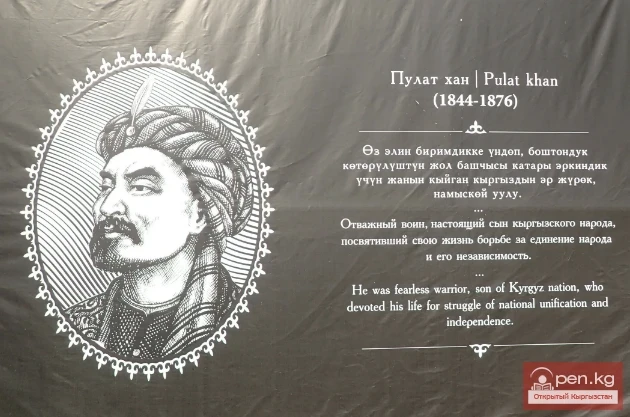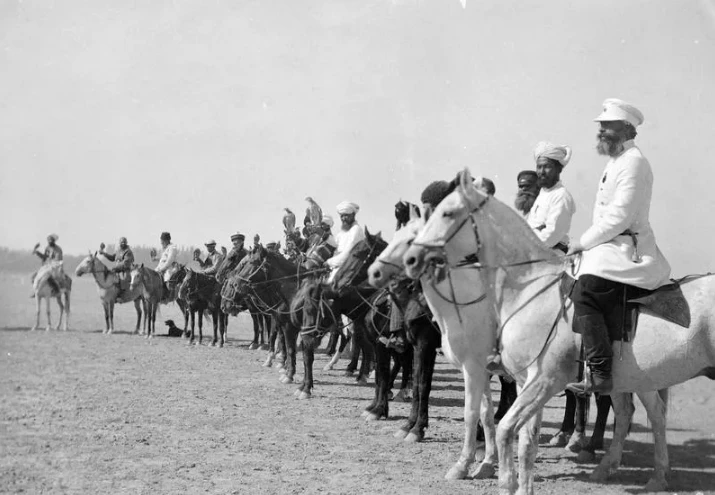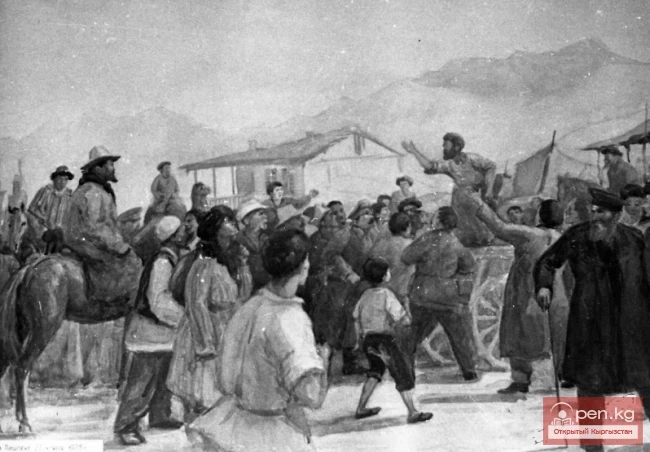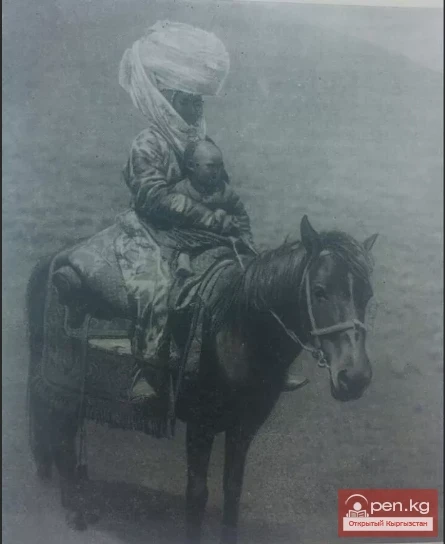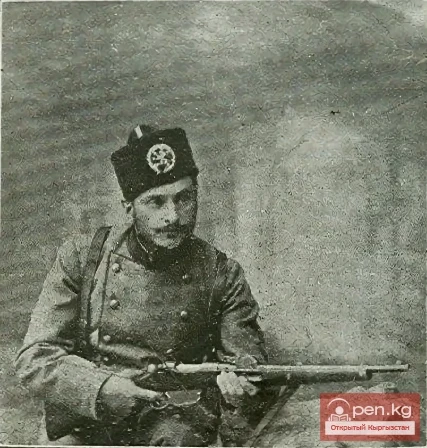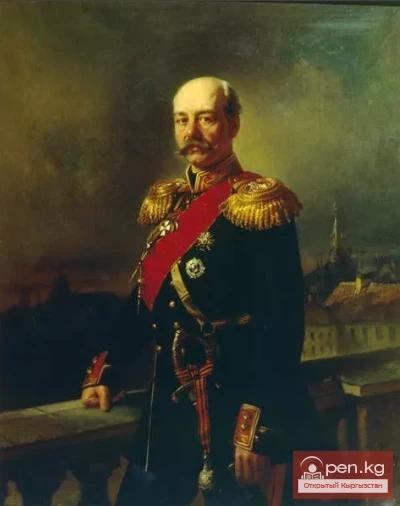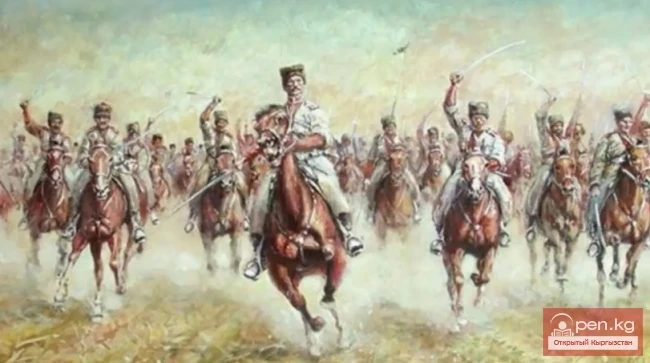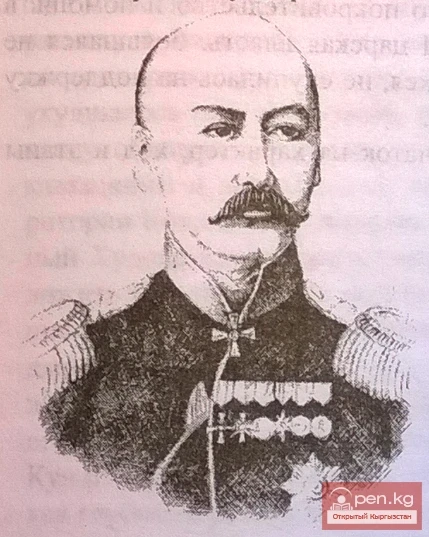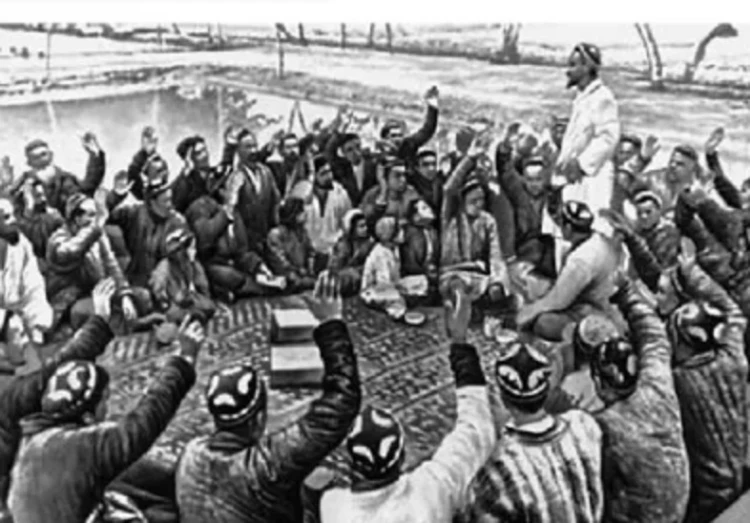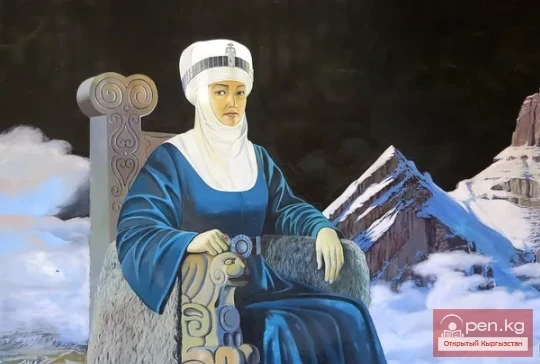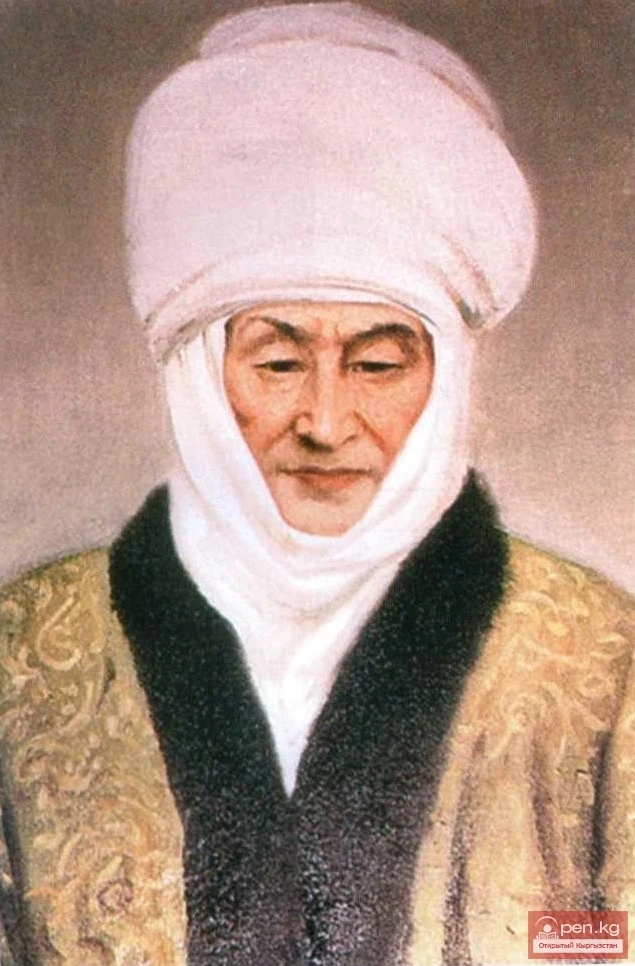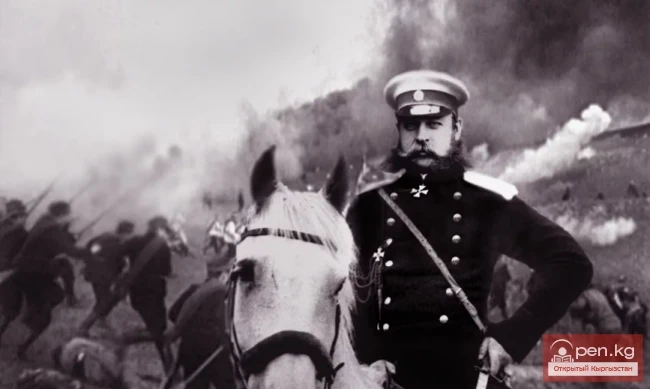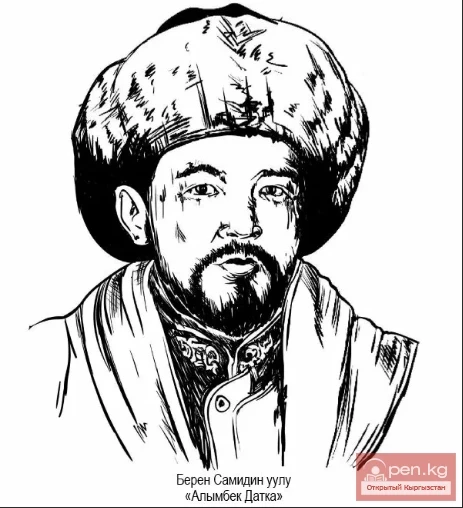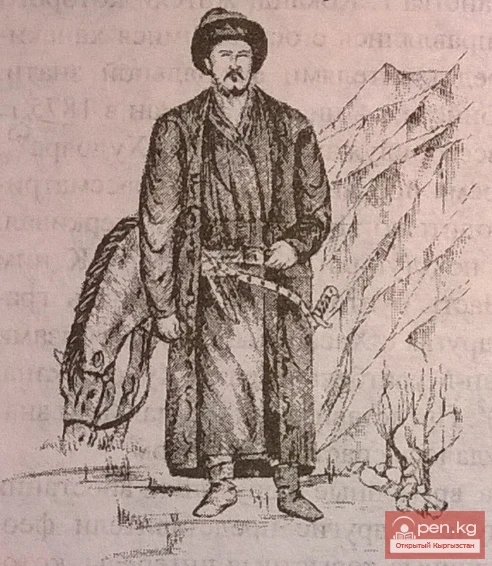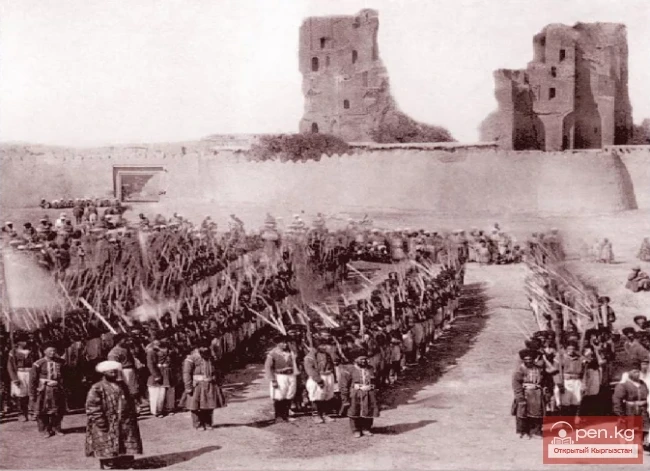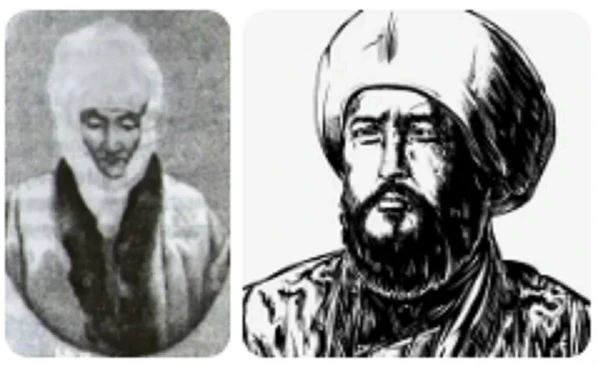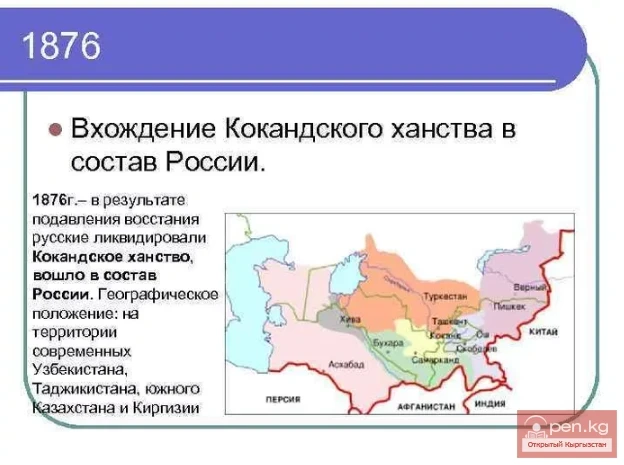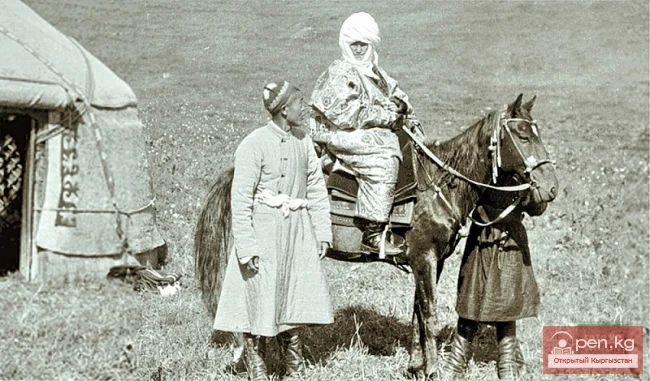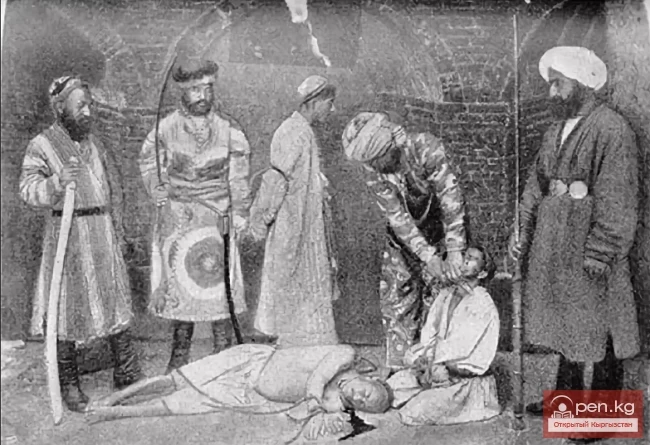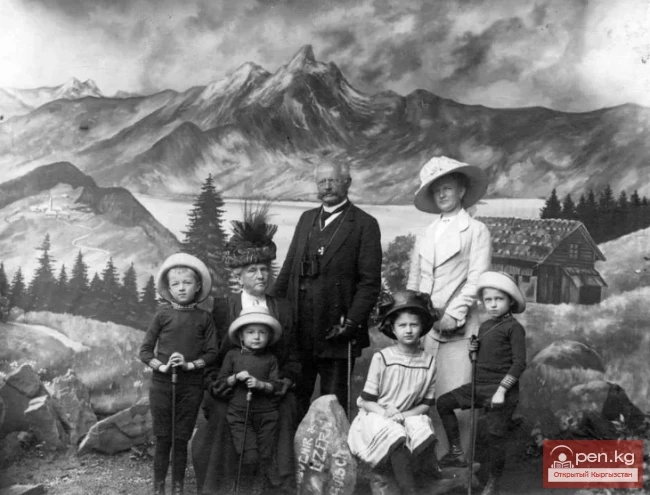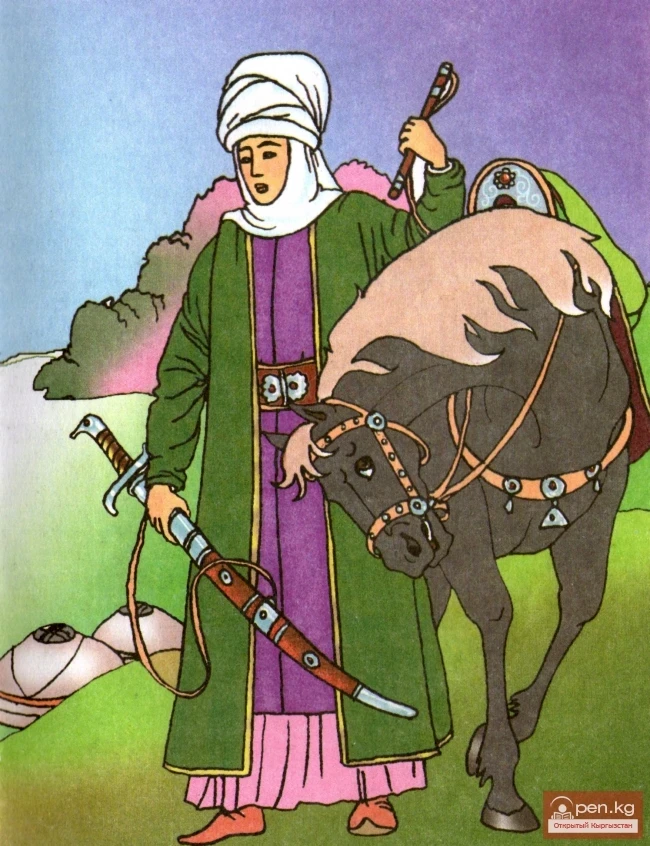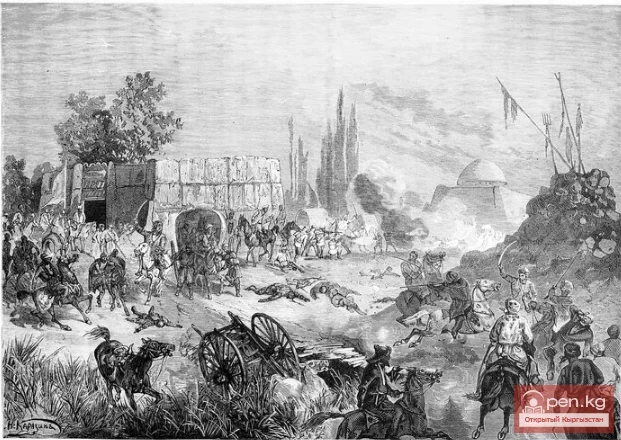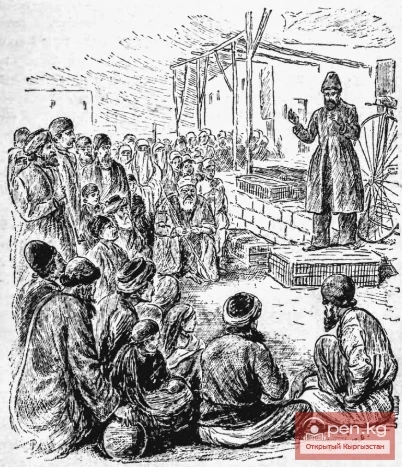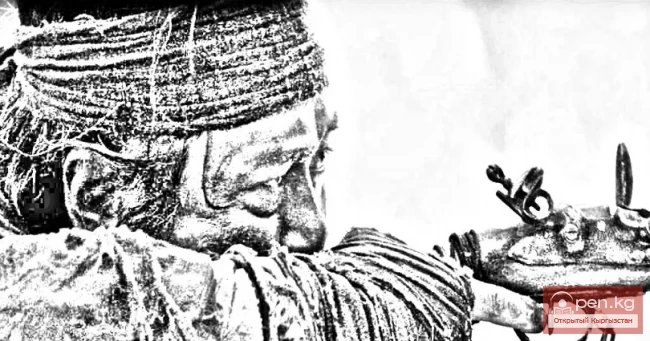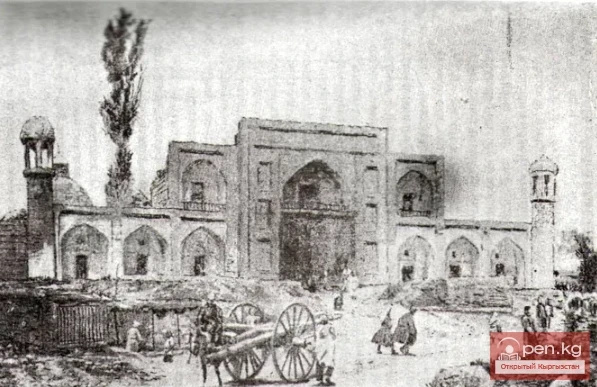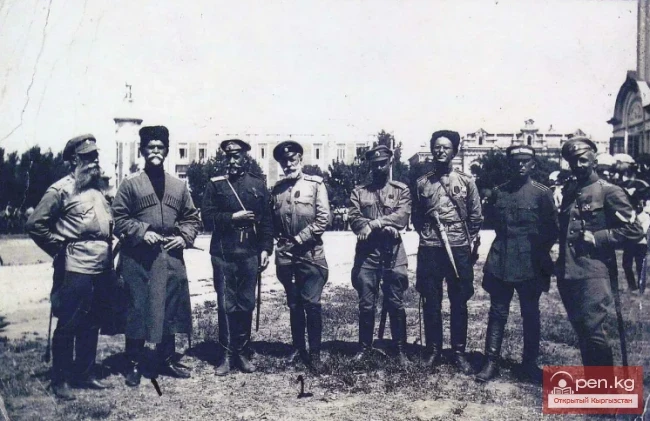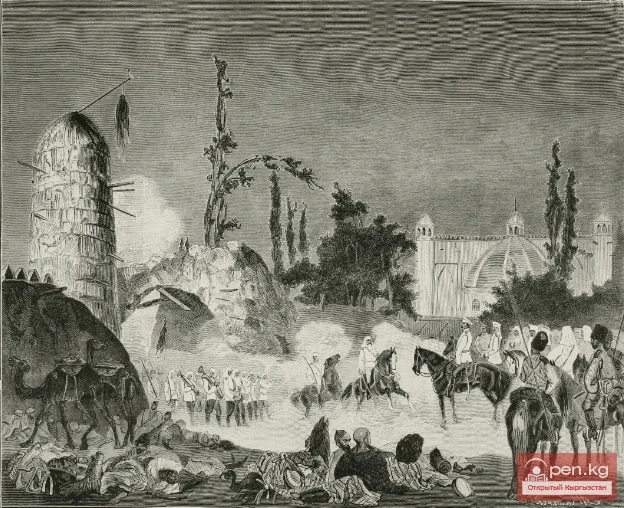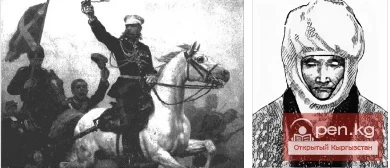
How did the "White General" meet the legendary Queen Alai?
The situation was as follows.
It was the year 1876. That summer, the commander of the Russian troops in Central Asia, General Mikhail Dmitrievich Skobelev, was pressing the last rebel detachments in Alai, who refused to submit to Russia and were fighting under the banner of a holy war against the "infidels" - the jihad. The rebels were led, after the death of their leader - the self-proclaimed Pulat-khan - by the eldest son of Kurmandzhan datka, Abdullabek. He was accompanied by two of his brothers - Mamytbek and Asanbek.
It is known that until that moment, M. D. Skobelev had made several attempts to establish peaceful negotiations with Abdullabek. Being an arrogant and proud associate of the disgraced Pulat-khan, and having, like him, a higher Islamic spiritual education, he refused to submit to the "infidel kafirs." This fanatically inclined and quite ambitious politician was not at all tempted by the prospect of becoming a Russian subject and subsequently a simple volost elder, a tax collector for the imperial treasury. The failures of Skobelev's negotiations with the unyielding leader of the Kyrgyz are evidenced by numerous letters from their participants. The results of this correspondence are currently stored in the military-historical archive in Moscow.
The Alai queen herself was hiding in the mountains from the onslaught of the Russians. She was surrounded and captured by a detachment of Shabdan-baatyr, who was in the service of the Russians. Being well aware of the influence of the matriarch of the southern Kyrgyz, the commander of Skobelev's advance detachments, Major General M.E. Ionov, honored Kurmandzhan with an escort to the village of Gulcha, where the Russian headquarters was located at that time.
Not offering any resistance to her captors, she immediately agreed to meet with the commander of the army, M.D. Skobelev, whose camp was located in the Archa-Bulak area in Chon-Alai.
The captured datka arrived there accompanied by Ionov, as well as a group of biys, bringing with her her younger son Kamchybek and her grandson Myrzapayaz. Being a very tactful person, well-versed in local customs, Mikhail Dmitrievich Skobelev received the Alai queen with the appropriate courtesy due to her rank. During the negotiations, both sides displayed considerable diplomatic talent, which ultimately became the decisive factor in this pivotal event in the history of the Alai Kyrgyz.
Here it is worth noting that it was the first time Kurmandzhan had seen the "infidels" up close, towards whom she had previously felt quite understandable distrust.
The relationships had been rather cool up to that moment due to the well-known events of the Pulat-khan uprising, complicated by the attempts of the imperial administration to maintain the status quo during diplomatic games with the Kokand Khanate.
After escorting the datka back to her native pastures, M.D. Skobelev reported to the Turkestan Governor-General K. P. Kaufman about the successful completion of the expedition to Alai. The recipient thanked his subordinate for the success, sending him a corresponding telegram on October 12, 1876. In it, the Governor-General expressed his satisfaction with the results, not forgetting to mention that the participants had conducted topographical surveys of nearly thirty thousand square versts.
Kurmandzhan datka fulfilled her promise. Her sons returned home. Mamytbek and Khasanbek came back from Kabul, while Batyrbek returned from the badaulet of Yakub-bek in Kashgar. The then-arrived Governor-General Kaufman appointed them as volost administrators.
Thus, the Mountain Queen forever linked the fate of her people with Russia. She established trusting relationships with many representatives of the imperial authority. A friendship also developed with Major General Ionov, who was at that time the district chief of Osh. Datka's son Mamytbek preserved a bundle of letters from the correspondence between the matriarch and the imperial general.
The campaign of M. D. Skobelev concluded in the summer of 1876. After that, the victorious general was to head to the Balkan War and achieve his immortality there, giving his life for the victory of the Russian arms in the Balkans.
The result of the defeat of the Kokand Khanate was decades of peaceful life in the region, including in southern Kyrgyzstan.
The Conqueror of Kokand, Russian General Mikhail Dmitrievich Skobelev
